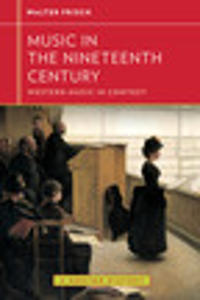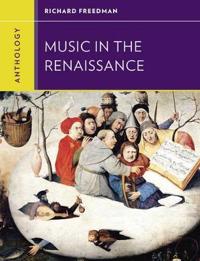Brahms (Häftad)
avWalter Frisch
ISBN: 9780300099652 - UTGIVEN: 200401This book is the definitive guide to Johannes Brahms's four symphonies. It presents an engaging and thorough treatment of the genesis, structure, reception, and performance history of these internationally admired and frequently performed works. Walter Frisch provides a sensitive analytical commenta[...]
Music in the 19th Century (Häftad)
avWalter Frisch
ISBN: 9780393929195 - UTGIVEN: 2012-11Music in the Nineteenth Century examines the period from the Congress of Vienna in 1815 to the advent of Modernism in the 1890s. Frisch traces a complex web of relationships involving composers, performers, publishers, notated scores, oral traditions, audiences, institutions, cities, and nations. Th[...]
Brahms and the Principle of Developing Variation (Övrig)
avWalter Frisch
ISBN: 9780520069589 - UTGIVEN: 1990-04-20In this analytical study of eighteen important works by Brahms, Walter Frisch makes skillful use of Schoenberg's provocative concept of 'developing variation'. Frisch traces a genuine evolution through Brahms' compositions; he considers their relationship not only to each other, but also to signific[...]
German Modernism: Music and the Arts (Övrig)
avWalter Frisch
ISBN: 9780520251489 - UTGIVEN: 2005-05-23In this pioneering, erudite study of a pivotal era in the arts, Walter Frisch examines music and its relationship to early modernism in the Austro-German sphere. Seeking to explore the period on its own terms, Frisch questions the common assumption that works created from the later 1870s through Wor[...]
Theory of Harmony (Häftad)
avArnold Schoenberg, Walter Frisch
ISBN: 9780520266087 - UTGIVEN: 201008Anthology for Music in the Renaissance (Pocket)
avRichard Freedman, Walter (EDT) Frisch, Richard Freedman
ISBN: 9780393920192 - UTGIVEN: 2012-11Anthology for Music in the Renaissance, part of the Western Music in Context series, is the ideal companion to Music in the Renaissance. Twenty-seven carefully chosen works--including an isorhythmic motet by Ciconia, an English carol, a Janequin chanson, and lute composition by Ortiz--offer represen[...]








